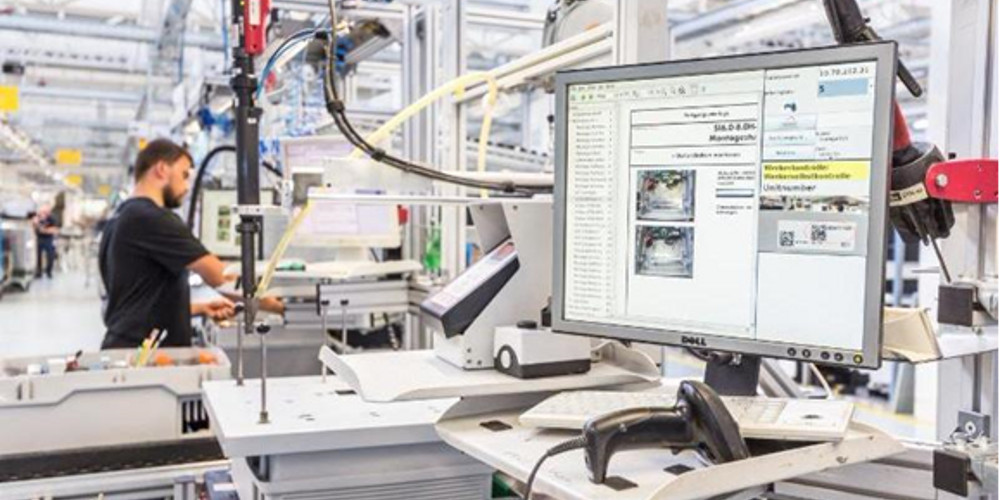
Image: SolarPower Europe
pv magazine: Mr. Watson, what are the main goals of the European Commission's Clean Energy Industrial Forum?
Watson: The Clean Energy Industrial Forum (CEIF) has been set up by the Commission to develop a strategy to build a supply side policy for European clean energy sectors. The CEIF comprises three pillars: one is on batteries; one on renewables; and one on construction. SolarPower Europe is active in all three areas, as we were instrumental in calling for, and getting the CEIF off the ground.
Who took part in kicking-off the meeting?
In the launch event on Friday there were representatives from the European Investment Bank, Saft, Iberdrola, WindEurope, Norvolt, research institutes and politicians from the European Parliament and national governments – like Bulgaria. All were united in their belief that following the creation of a renewables market, supply side policies are needed to make sure Europe grows manufacturing jobs too.
How will the future framework of the new industrial strategy look, and how this will help solar manufacturing to grow again?
The CEIF is a direct result of the lobbying initiatives of SolarPower Europe over the past 18 months. We began calling for such a forum in light of the failed trade defense policies that had been implemented over the last five years for solar panels. Our view is that an industrial strategy is much more likely to drive investment into the value chain. We launched our taskforce on industrial strategy last September, led by Wacker Chemie, and our input is now being reflected in the European Commission’s CEIF.
Can you provide a few examples?
We believe that different parts of the value chain need to have different policies – there is no one size fits all approach. For example, some products are part of globally commoditized markets – such as panels; whereas others are more specialist, like equipment manufacturing; and finally local-to-local markets like BIPV.
When looking at this complexity, we need to develop policies under an umbrella that support each of these segments, while not harming any other segment of the value chain. This means a range of policy instruments will be needed. One of the most obvious support tools will be access to finance for manufacturers; and public and private banks must be encouraged to support solar industrial developments. This financial support should be legitimized with changes to state aid rules, and the creation of export zones and tax free zones for a limited number of years should be included.
What is also important, in addition to financing?
Beyond finance, we also believe strongly that a quality framework for products should be implemented, such as ecodesign and ecolabel measures, when conducted in an optimal fashion that do not burden the sector unnecessarily. Ideas such as a carbon footprint for solar products could also be considered as this would ensure that we have the most environmentally sound products on the European market. We also believe that the European Commission needs to use its trade power in third countries to push European standards for solar, break down trade defense measures such as the Section 201 case in the U.S. on panels and local content requirements in many markets including India, and use its development finance to encourage more uptake of solar products.
If you combine these three general elements in an industrial strategy this will already be doing a lot for solar industrial development in Europe.
Which parts of the value chain are you specifically thinking of?
The whole value chain must be involved in industrial strategy, which is why we include work streams for operations and maintenance, developers and installers within our industrial strategy taskforce in SolarPower Europe, and the European Commission supports this approach, as they also recognize the need to have a voice from the downstream sector in any industrial policy discussions. This creates a more holistic approach to the industrial strategy and increases the chances for it to be successful. All of the upstream sector will be involved, from raw materials to balance of systems.
What are the first measures the EU Commission is supposed to begin with and why?
The European Commission will develop a position paper focusing on three elements – competitiveness, R&D&I, and trade policy. After this, policy instruments aimed at kick-starting financial support and investment will be brought forward to begin the process of developing an industrial support framework. This is seen as the key issue – at the top end of the TRL to get technologies to scale, and at the low end of the TRL to ensure that we can continue our history of producing innovation in Europe.
What is the time frame for this?
The Commission has a three year plan for the CEIF – year one: development; year two: implementation; and year three: monitoring and evaluation through KPIs – that are being developed with the input of SolarPower Europe.
Do you think the EU Commission will act quickly enough?
We are asking for this whole process to be speeded up – we think that three years is too long. We need action now, especially in areas like BIPV, if we are to have a major breakthrough in that segment. Therefore, we think that the whole process should be set up and in monitoring mode by the time the next Commission takes its seat in Brussels in 18 months.
How do you expect the European PV market to develop in 2018?
Given the improvement from 2016-2017, with a growth of around 20%, we believe that the trend will continue and that we could get close to double digits once again. The full predictions will be published in June in our Global Market Outlook. Of course, this is important for industrial policy – without a market there is no need for supply side policies and thus everything starts with a market for solar in Europe again. Given that we expect growth, the time is right for such an industrial policy and SolarPower Europe are at the forefront of creating one in Europe.
This content is protected by copyright and may not be reused. If you want to cooperate with us and would like to reuse some of our content, please contact: editors@pv-magazine.com.




Solar Power Europe all for breaking down any barriers allowing any cheap sub-standard products into the market.
At least the members will make a few more euros from unknowing consumers.
They have never done anything apart from help themselves.